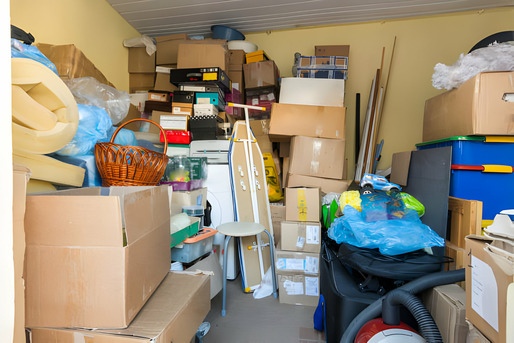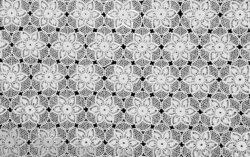
Ever noticed how a tidy home seems to make everything feel better? Well, turns out, there’s some science behind it. In this guide, we’re diving into the simple but powerful world of the psychology of clutter. We’ll talk about why our homes get messy in the first place and how that clutter affects our minds. But don’t worry – it’s not all complex theories. We’re breaking it down into easy, everyday ideas to help you understand why a clean home can boost your mood and overall well-being.
Your home is like a personal sanctuary, and how you keep it matters more than you might think. If you’ve ever wondered why a messy room feels stressful or why cleaning up feels strangely satisfying, we’ve got you covered. From the small reasons clutter builds up to the big impact it has on your mental health, we’re exploring it all. And the best part? We’re not getting into fancy words or complicated stuff. It’s all about simple tips and easy-to-understand info to help you make your home a cleaner, happier place. Let’s get into the nitty-gritty of why a tidy home equals a happier you!
Here is out post on The Connection Between Clutter and Mental Clarity
The Causes of Clutter
Decision Fatigue
One major cause of clutter is decision fatigue. When faced with numerous choices daily, from what to wear to what to eat, it’s easy to let organizing decisions slide. This leads to a buildup of items and a cluttered environment.
Emotional Attachment
Emotional attachments to objects can contribute to clutter. Holding onto items for sentimental reasons, even when they no longer serve a purpose, can result in a crowded living space. Understanding the balance between sentimentality and practicality is key.
Procrastination
Putting off tasks is another culprit behind clutter. Procrastination can lead to delayed cleaning and organizing efforts, allowing items to pile up. Recognizing and addressing procrastination habits is essential for maintaining a clutter-free home.
Overconsumption
Living in a consumer-driven society, it’s easy to accumulate more than we need. Overconsumption contributes to clutter as our homes become filled with items that may have seemed essential at the time of purchase but eventually lose their value.
Lack of Storage Solutions
Inadequate storage solutions can exacerbate clutter issues. Without designated spaces for belongings, items end up scattered, making it challenging to maintain an organized home. Implementing effective storage solutions is crucial for clutter prevention.
The Impact of Clutter on Mental Health
Increased Stress
A cluttered environment has been linked to increased stress levels. The visual chaos can overwhelm the mind, making it difficult to relax and recharge. Creating a serene, organized space can significantly reduce stress and promote mental well-being.
Impaired Focus and Productivity
Clutter can impair cognitive function, leading to reduced focus and productivity. A messy environment competes for attention, making it harder to concentrate on tasks. Tidying up can enhance cognitive performance and boost overall productivity.
Elevated Anxiety
Studies suggest a connection between clutter and elevated anxiety levels. The constant visual reminders of unfinished tasks or disorganization can contribute to a sense of unease. Decluttering has the potential to alleviate anxiety and create a more tranquil living space.
Negative Impact on Sleep
A cluttered bedroom may negatively impact sleep quality. The presence of excess items can create a distracting atmosphere, hindering the ability to relax. Maintaining a clean and organized sleep environment is essential for promoting restful sleep.
Relationship Strain
Clutter can lead to tension in relationships, as different tolerance levels for messiness can cause conflicts. Establishing clear communication and mutual agreements on organizing can strengthen relationships and create a harmonious living space.
The Benefits of a Tidy Home
Improved Mood
A clean home has the power to uplift your mood. The visual appeal of an organized space can evoke positive emotions, creating a more enjoyable and inviting atmosphere.
Enhanced Creativity
A clutter-free environment provides room for creative thinking. With fewer distractions, the mind is free to explore new ideas and innovative solutions to problems.
Better Physical Health
Maintaining a tidy home can contribute to better physical health. Regular cleaning reduces allergens and promotes a healthier living environment, positively impacting respiratory health.
Increased Energy Levels
Living in a clutter-free space can boost energy levels. The act of decluttering and organizing is a physical activity that can invigorate the body and mind, creating a more energetic lifestyle.
Greater Sense of Control
A clean and organized home fosters a sense of control over one’s environment. This feeling of mastery can extend to other aspects of life, promoting a more confident and empowered mindset.
See also our post on Tips for Cleaning and Revitalizing Your Home’s Entryway
Practical Tips for Decluttering
Start Small
Begin the decluttering process by tackling small areas or specific categories. Breaking down the task into manageable parts makes the process less overwhelming.
Declutter Regularly
Establish a routine for regular decluttering to prevent items from accumulating. Consistent efforts, even in short bursts, can maintain a clutter-free home over time.
Donate or Dispose
When decluttering, consider donating items in good condition or responsibly disposing of those no longer needed. This not only benefits others but also reduces environmental impact.
Organize Thoughtfully
Implement thoughtful organizational solutions. Consider the flow of daily activities and organize items accordingly, making it easier to maintain a tidy space.
Seek Support
Involve family members or roommates in the decluttering process. Collaborative efforts create a shared responsibility for maintaining an organized home.
Seeking Professional Help
Professional Organizers
Consider hiring a professional organizer if decluttering feels overwhelming. These experts provide tailored solutions to create a functional and organized living space.
Mental Health Professionals
If clutter is linked to deeper emotional issues, seeking the guidance of mental health professionals can be beneficial. Therapists can offer support and strategies for addressing the psychological aspects of clutter.
Cleaning Services
Regular cleaning services can assist in maintaining a clutter-free home. Outsourcing cleaning tasks can free up time and ensure a consistently tidy living environment.
Storage Solutions Experts
Consulting with storage solutions experts can help maximize space and minimize clutter. These professionals can provide customized solutions to suit your specific needs.
Holistic Approach
Adopting a holistic approach to well-being, including mental health, physical health, and environmental considerations, can contribute to maintaining a clutter-free and balanced lifestyle.
See also our post on Time-Saving Cleaning Hacks: Efficiency in Housekeeping
Conclusion
Your home is more than just a physical space; it profoundly influences your mental well-being. Understanding the psychology of clutter empowers you to make conscious choices that positively impact your living environment and, consequently, your happiness and health. When you recognize the causes of clutter, understand its effects on mental health, and implement practical solutions, you can create a home that nurtures your well-being and provides a foundation for a fulfilling life.







